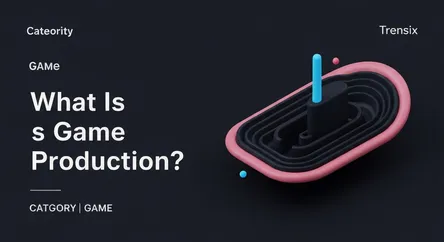Game
What Is Game Production?

Discover the process of game production, from initial concept to final release. Learn how producers manage teams, budgets, and schedules to create games.
What is it?
Game production is the business and management process of overseeing the development of a video game from its initial concept to its final release and post-launch support. It's the discipline that bridges the creative vision with the practical realities of time, budget, and resources. A game producer acts as the project manager, responsible for creating schedules, managing budgets, coordinating between different teams (art, programming, design, QA), and ensuring the project stays on track. They handle the logistics so that the creative teams can focus on making the game. It involves everything from milestone planning and risk assessment to marketing coordination and stakeholder communication.
Why is it trending?
As video games have grown into massive, multi-million dollar projects with teams of hundreds, the need for sophisticated production management has become critical. The rise of live-service games, which require continuous updates and content delivery, puts an even greater emphasis on long-term production planning. Furthermore, the highly competitive indie scene demands efficient production to maximize limited resources and stand out in a crowded market. The industry's increased focus on sustainable development practices and avoiding developer 'crunch' also highlights the importance of skilled producers who can manage projects effectively and ethically.
How does it affect people?
For game developers, effective production creates a structured and predictable work environment, reducing the infamous 'crunch' culture and improving work-life balance. It ensures that everyone's work is aligned towards a common goal, preventing wasted effort. For players, good production is the invisible hand that delivers a polished, stable, and timely game. It translates to fewer bugs, on-time release dates, and a cohesive final product where all the different elements work together seamlessly. When production fails, players experience delays, broken features, and an overall disappointing experience.